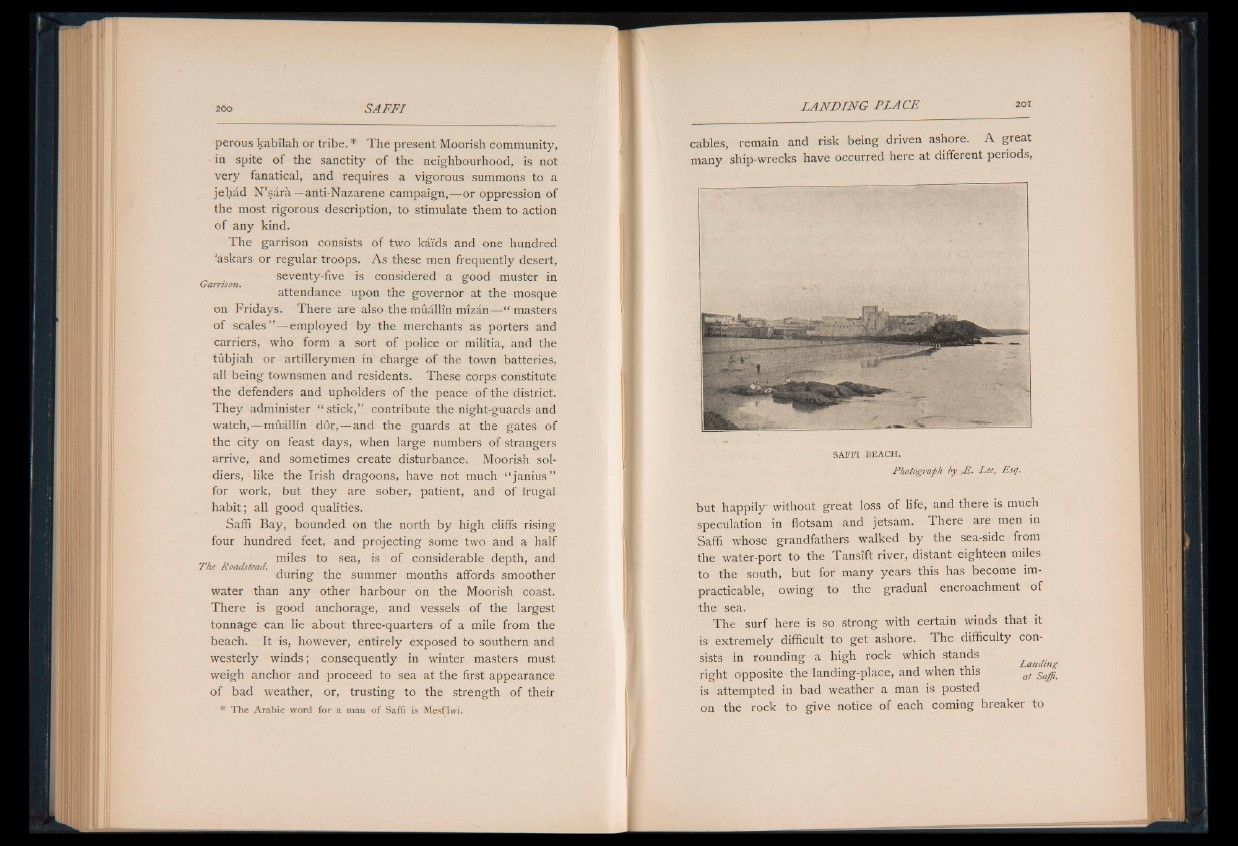
perous kabilah or tribe. * The present Moorish community,
in spite of the sanctity o f the neighbourhood, is not
very fanatical, and requires a vigorous summons to a
jehad N’sara — anti-Nazarene campaign,— or oppression of
the most rigorous description, to stimulate them to action
o f any kind.
The garrison consists of two kaids and one hundred
‘askars or regular troops. As these men frequently desert,
seventy-five is considered a good muster in
Garrison.
attendance upon the governor at the mosque
on Fridays. There are also the muallin mizan— “ masters
of scales” — employed by the merchants as porters and
carriers, who form a sort of police or militia, and the
tubjiah or artillerymen in charge of the town batteries,
all being townsmen and residents. These corps constitute
the defenders and upholders o f the peace o f the district.
They administer “ stick,” contribute the night-guards and
watch,— muallin dor,— and the guards at the gates of
the city on feast days, when large numbers of strangers
arrive, and sometimes create disturbance. Moorish soldiers,
like the Irish dragoons, have not much “ janius ”
for work, but they are sober, patient, and of frugal
habit; all good qualities.
Saffi Bay, bounded on the north by high cliffs rising
four hundred feet, and projecting some two and a half
miles to sea, is of considerable depth, and
The Roadstead. , . , „ , v .
during the summer months affords smoother
water than any other harbour on the Moorish coast.
There is good anchorage, and vessels of the largest
tonnage can lie about three-quarters of a mile from the
beach. It is, however, entirely exposed to southern and
westerly winds; consequently in winter masters must
weigh anchor and proceed to sea at the first appearance
of bad weather, or, trusting to the strength of their
* The Arabic word for a man of Saffi is Mesfiwi.
cables, remain and risk being driven ashore. A great
many ship-wrecks have occurred here at different periods,
SAFFI BEACH.
Photograph by JZ. Lee, Esq.
but happily without great loss of life, and there is much
speculation in flotsam and jetsam. There are men in
Saffi whose grandfathers walked by the sea-side from
the water-port to the Tansift river, distant eighteen miles
to the south, but for many years this has become impracticable,
owing to the gradual encroachment of
the sea.
The surf here is so strong with certain winds that it
is extremely difficult to get ashore. The difficulty consists
in rounding a high rock which stands Landin
right opposite the landing-place, and when this at SaJ^
is attempted in bad weather a man is posted
on the rock to give notice of each coming breaker to